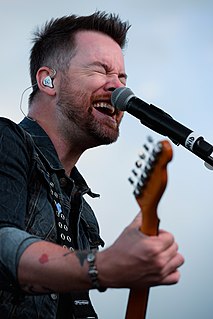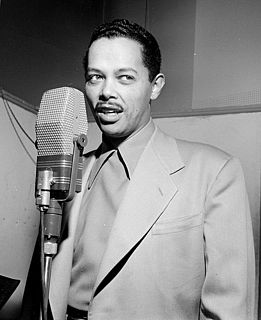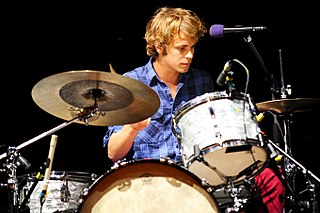A Quote by David Cook
I think every good song tells a story, as ambiguous and vague as it may be. And if you know what a song is talking about, it can only help your performance.
Related Quotes
I'm no longer beholden to the sacredness of the recorded song as some kind of ultimate standard by which every performance of the song is measured. I like to diversify, that there are multiple versions of every song. And the songs incorporate a lot of improvisation, and an element of chance, and I think that's exciting. There's no one true formulation of a song, they have various manifestations depending on the space we're in. I like that.
When writing I just go with the song. I go with the song and try to tell the story. So the story may be "Wonderful Baby", which is a little song. Or it might be a gentle song, "Empty Chairs". Or it might be a rock and roll song like "Prime Time" or "Run, Diana, Run", or "American Pie". I don't know where it's gonna go. I don't have any idea what I'm doing. I just do it. I just keep doing it. I keep taking adva
Thinking about making a love story without music was really frightening, Sciamma admitted. Because every love story we know, we think about 'Titanic' we think about the music, we think about 'Gone with the Wind' we think about the music, we think about 'E.T.' we think about the music, and every love story has its own tune, 'That's our song.'
Whenever I think I know something is a classic, or an amazing song, I realise it's still so subjective, because you and your friends could be talking about something, say, '(I Can't Get No) Satisfaction' - an amazing classic song - or someone would be like, "'Hey Jude' is an amazing song!", and I'd be like, "I don't really like it."
An audience will let you know if a song communicates. If you see them kind of falling asleep during the song, or if they clap at the end of a song, then they're telling you something about the song. But you can have a good song that doesn't communicate. Perhaps that isn't a song that you can sing to people; perhaps that's a song that you sing to yourself. And some songs are maybe for a small audience, and some songs are for a wide audience. But the audience will let you know pretty quickly.
I think every time I play, every show is different, and I think that at a certain point a song isn't about you anymore. It's about the audience, it's about how the song has worked its way into other people's lives and that kind of keeps the meaning of the song new, because you see it reflected in other people every night.
But once you've made a song and you put it out there, you don't own it anymore. The public own it. It's their song. It might be their song that they wake up to, or their song they have a shower to, or their song that they drive home to or their song they cry to, scream to, have babies to, have weddings to - like, it isn't your song anymore.



































